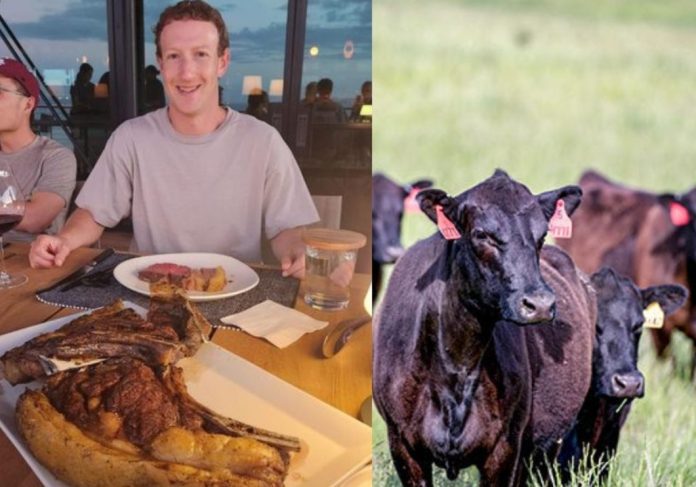News in brief:
â Facebook CEO Mark Zuckerberg is delving into cattle ranching on his 1,400-acre estate, raising cattle for beef with a unique diet of macadamia meal and beer.
â Despite skepticism about the unconventional feed, he is enthusiastic and emphasises local production of the feed and beer as well as integration and conservation efforts amid controversy over his land acquisitions on Kauai.
Facebook CEO Mark Zuckerberg has embarked on a new venture of cattle ranching. He announced on facebook and Instagram that heâs raising high-quality Wagyu and Angus cattle on his 1,400-acre estate on Kauai, feeding them a unique diet of macadamia meal and beer.
Zuckerberg, whose net worth surpasses $126 billion, purchased the land, known as Koâolau Ranch, in stages starting in 2014. His goal, he says, is to produce âsome of the highest quality beef in the world.â
However, his unusual cattle feed has raised eyebrows. Zuckerberg admits itâs an experiment, inspired by the potential nutritional benefits of macadamia nuts and the belief that beer helps the cows relax, leading to better-tasting meat. While research on beerâs effect on cattle relaxation is inconclusive, feeding Wagyu cows beer is not unheard of in Japan, where the breed originates.
Despite the skepticism, Zuckerberg is enthusiastic about his project. Heâs shared photos of his daughters learning about ranching and planting macadamia trees. The tech boss emphasised the local and vertically integrated nature of his endeavor. He plans to grow not only feed but also produce the beer for his cattle, ensuring full control over the process.
This new venture isnât without controversy. Zuckerberg and his wife, Priscilla Chan, have faced criticism for their land acquisitions on Kauai. The couple have been accused of displacing local residents and attempting to âcoloniseâ the island. A petition against their presence has garnered over a million signatures.
Acknowledging these concerns, Zuckerberg and Chan have pledged to work with the community and preserve the islandâs natural beauty. They plan to continue the conservation efforts of the Waioli Corporation, which previously managed the land they purchased in 2021.



